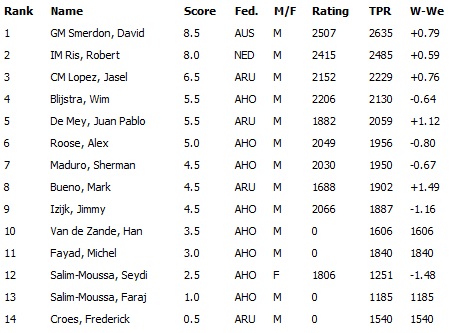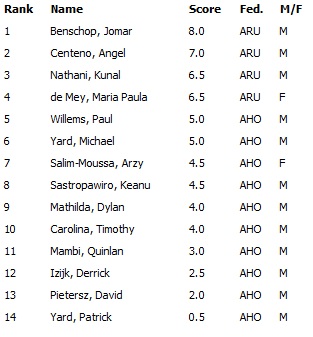Curaçao 2012 Wrap – The Chess
I’ve delayed wrapping up the report of the Curaçao chess festival because I’ve been without internet on a tiny little Caribbean island called Bonaire, swimming with turtles, windsurfing – you know, the usual post-chess comedown. More on that later. Given the division of interests from visitors to davidsmerdon.com, you’ll find most of the non-chess shenanigans (and plenty more pictures) in the next post.
After our draw in round three, Robbie and I started getting our beach brains into gear with a convincing run of wins, despite constraining our preparations to the surf. In fact, dual winning scores of 8.5 out of 9 looked the odds-on bet. In round six I was pitted against our most dangerous opposition, third seed and Curaçao champion, Wim Blijstra. Wim cunningly prepared a line of the white side of the Benoni that had been played the week before by Sokolov against Shabalov in the World Open (and had led to a crushing 19 move win). Given I hadn’t seen the game, I would have had quite a few problems to solve over the board, had Wim not accidentally mixed up the move order…
But Wim, one of the most optimistic and unflappable characters I’ve met (both on and off the board), was not to be put off. In round 8 he was pitted against Robbie, and quickly secured a clear advantage with the black pieces after less than a dozen moves. Shaken but not stirred, Robbie bailed out with a well-timed draw offer, and suddenly the deadlock at the top was broken. Naturally Robbie was a little bummed by this result, and after we shared a few consolatory caipirinhas, he announced he was throwing aside his usual patient, positional, theoretical style for the final round. A very different Robbie took the white pieces the following day, and after his performance, perhaps Brazilian cocktails should be a part of every game’s preparation:
Unfortunately for Robbie, despite his meat-no-veg approach to the final round, I managed a win against one of the top female players from the island, Seydi Salim-Moussa, keeping my nose in front at the line. Jasel Lopez, one of Aruba’s young stars, came in a deserved third.
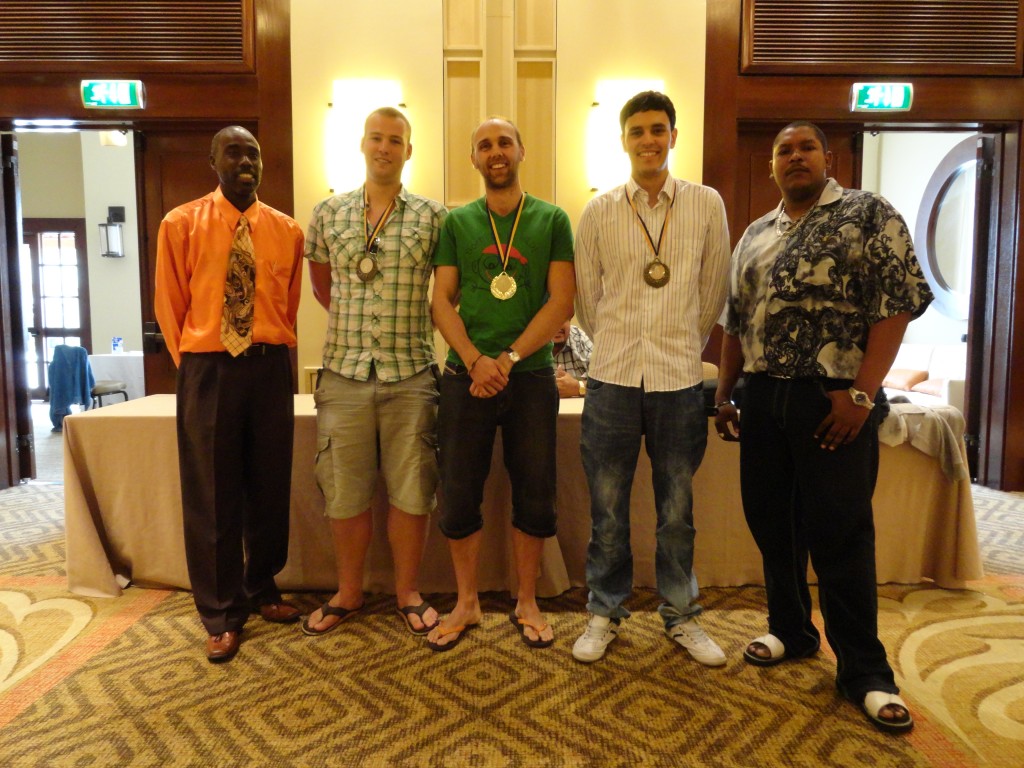
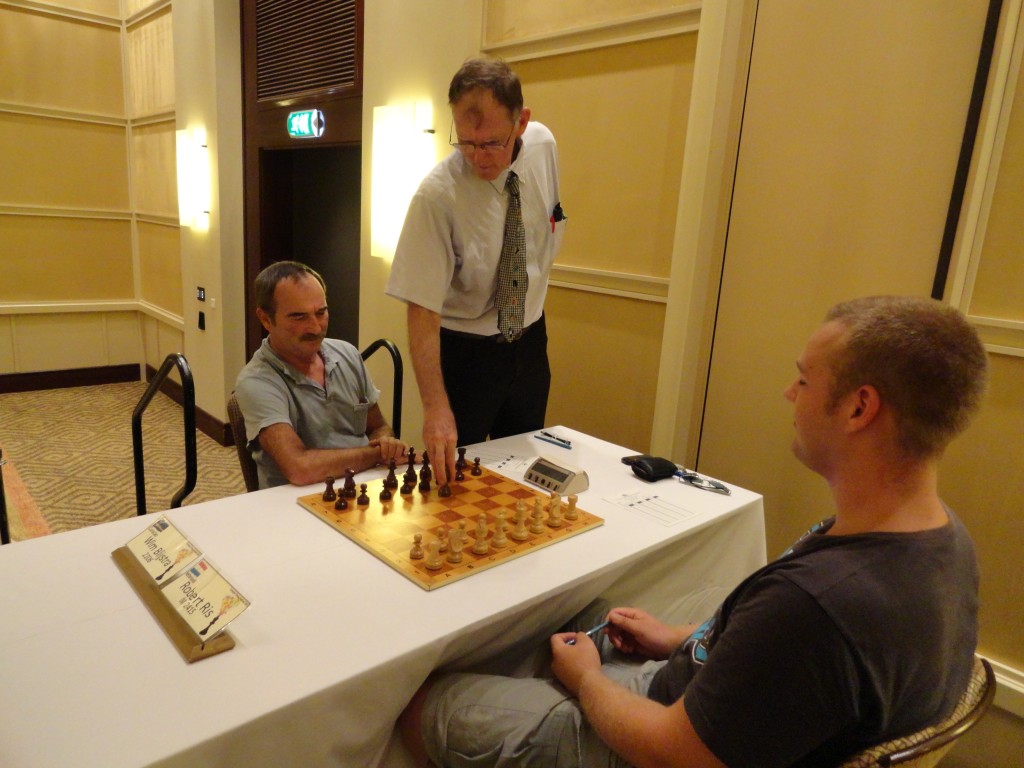
The Aruban juniors also dominated the junior event, taking out the top three prizes. Jomar Benschop dominated at the top to take the gold; my neighbourhood prankster for the tournament, Angel Centeno (who I suspect was responsible for altering my Google profile to read “Died in Malaga”) finished second after an amazing swindle in the final round; and the always cheery Kunal Nathani shared bronze with the always cheeky Maria Paula de Mey. The whole Aruban squad, guided by the enigmatically gregarious brother Maurits and Raymundo Dijkhoff, are very enthusiastic about their chess, and made our innately depressing apartment complex a whole lot cheerier in the evenings.
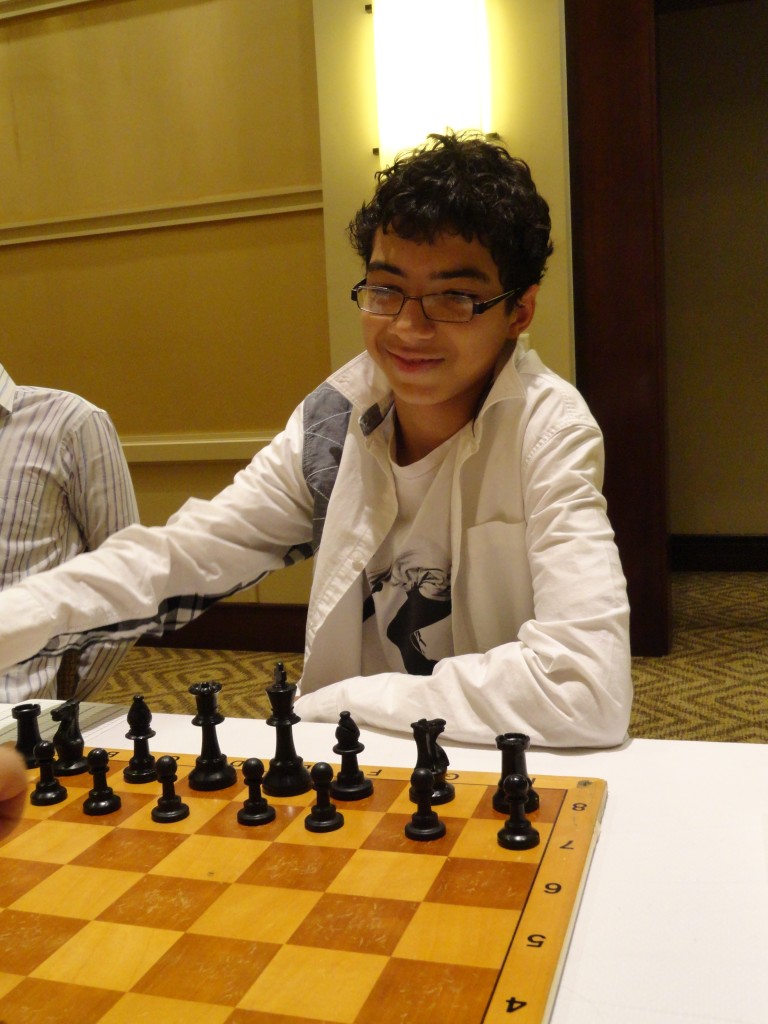
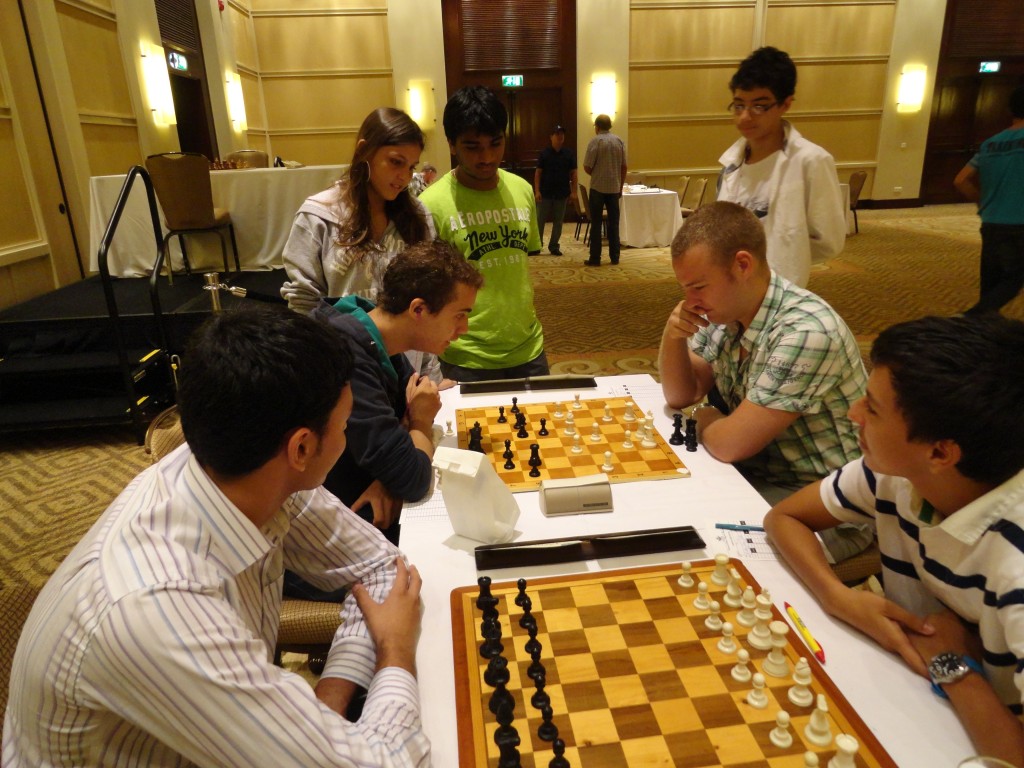
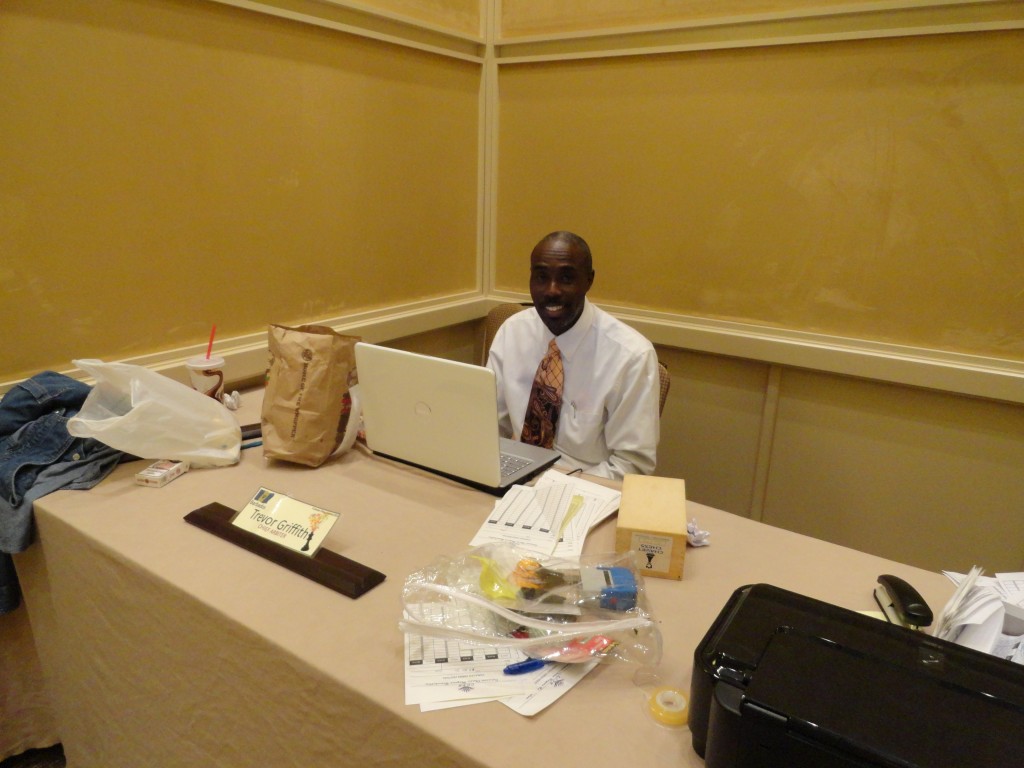
Overall, the Curaçao chess festival fulfilled all of the criteria I’d set for my summer chess tournament: perfect weather, beautiful surroundings, and a relaxed schedule so that more time was devoted to soaking up the sun and sea rather than sweating it out over the board. For me, then, it was perfect. But for many chess tourists, this year’s event would have been a little more disappointing. The organisers had a few unexpected problems to deal with, eventually leading to the lowest number of participants seen in the tournament’s illustrious history over the past decade. And now there’s a question mark over next year’s event, which is a real shame. Curaçao has the perfect combination of ingredients to create a truly delicious beach-chess-holiday cocktail. And I wouldn’t mind another drink.
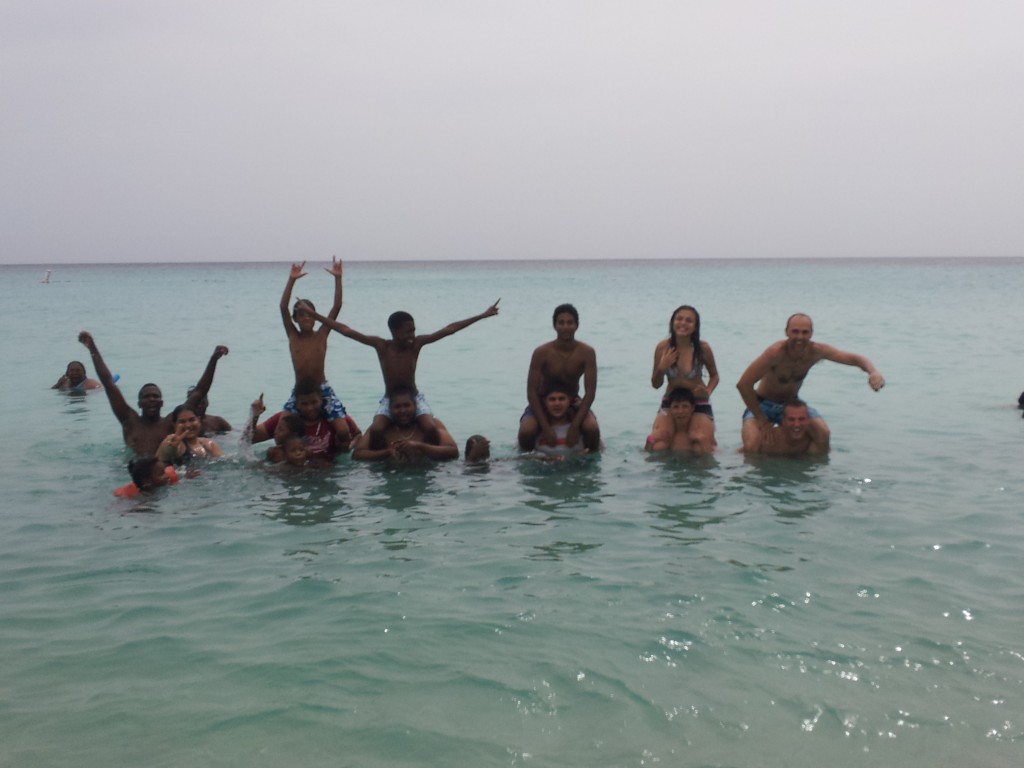
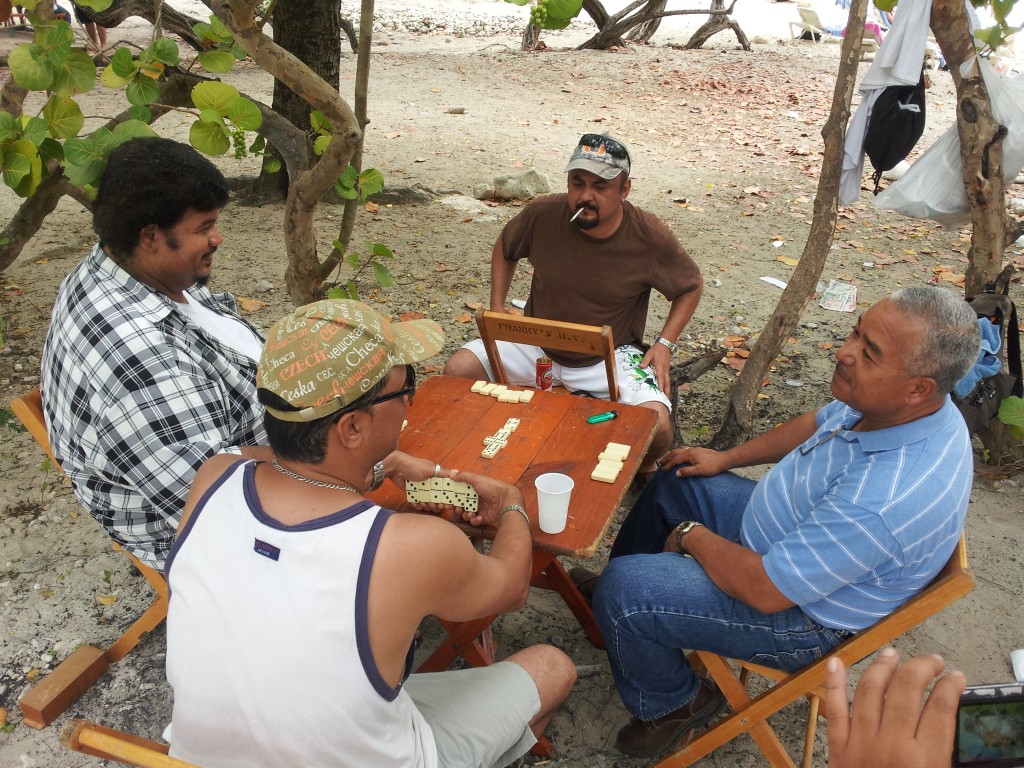
Still, there’s no shortage of generous, hard working chess enthusiasts on the island. The three who impressed me the most are Wim, Seydi and Fabio Mensing (Curaçao’s second-strongest player). All three put a lot of work into Curaçao chess in general, as well as this tournament, and all will be representing their country at the upcoming Olympiad. This is in itself an impressive combination, as it’s rare in my experience for a country’s top players to be so active in selfless chess organisation as well – most are happy just to sit back and claim their self-professed deserved accolades. Australia’s former number one, Ian Rogers, is also a notable exception, having put tireless hours into promoting Australian chess (and his competitors!) both while an active player and subsequently as a trainer. Fabio inparticular, though unable to play the tournament due to work commitments, still took time out of his schedule to solve any problems that arose and generally look after the foreign players to make sure they went home with smiles on their faces. And, despite some mild sunburn, my grin’s as wide as ever.
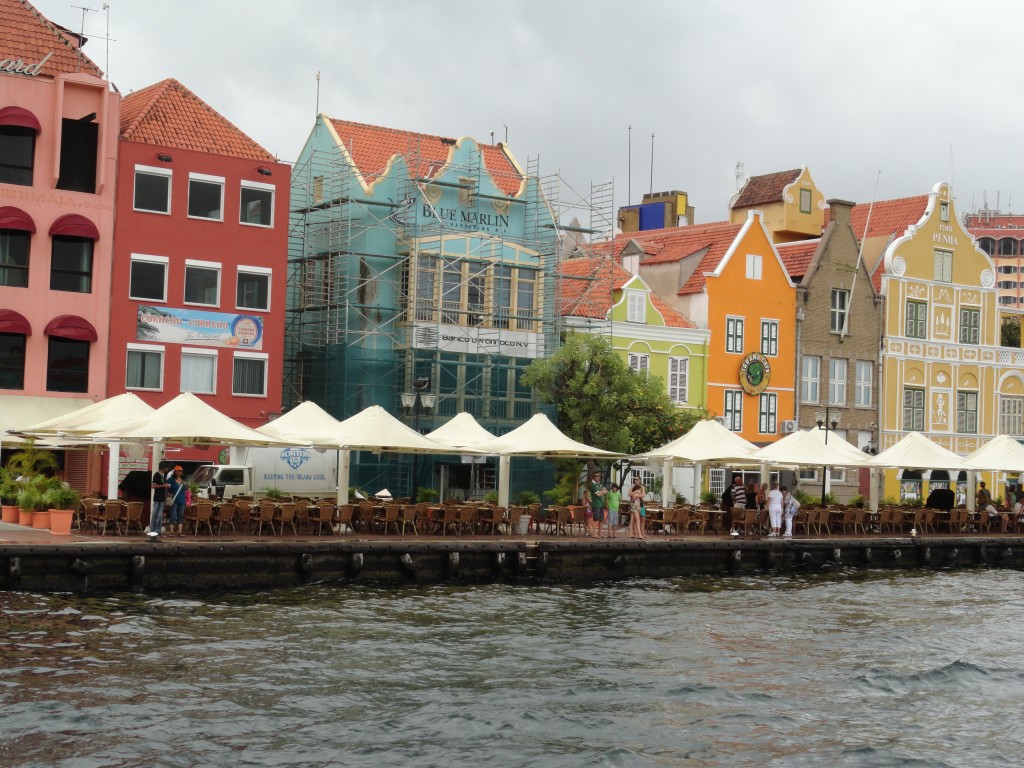
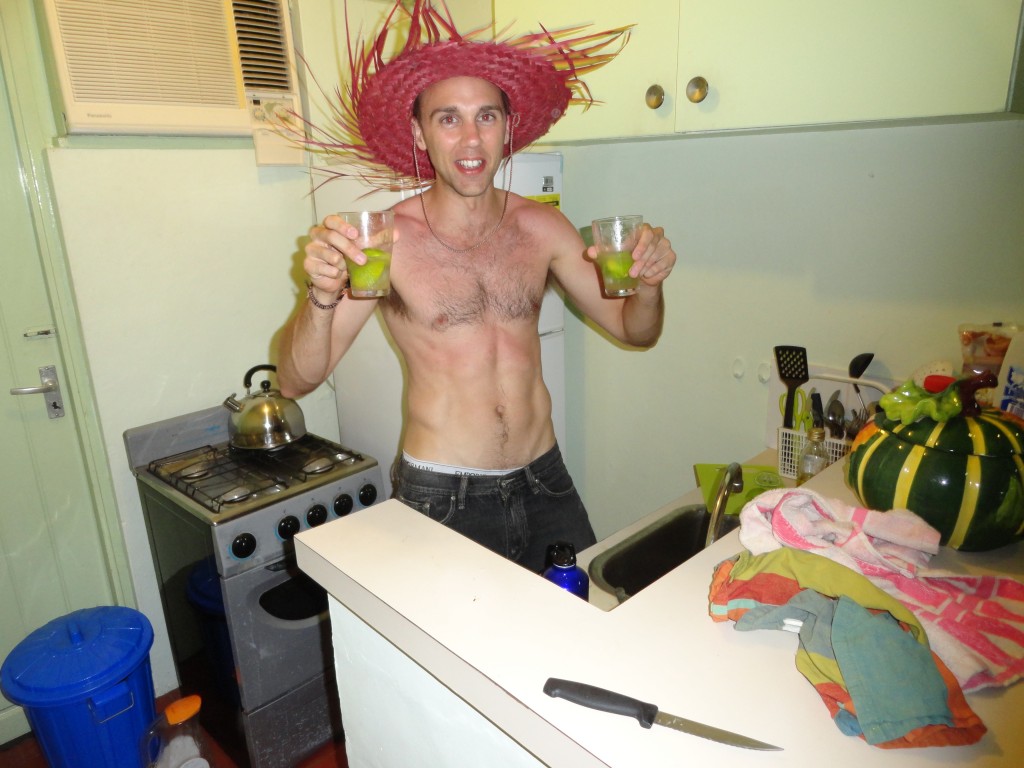
Click here to see your author being even more irresponsible.
